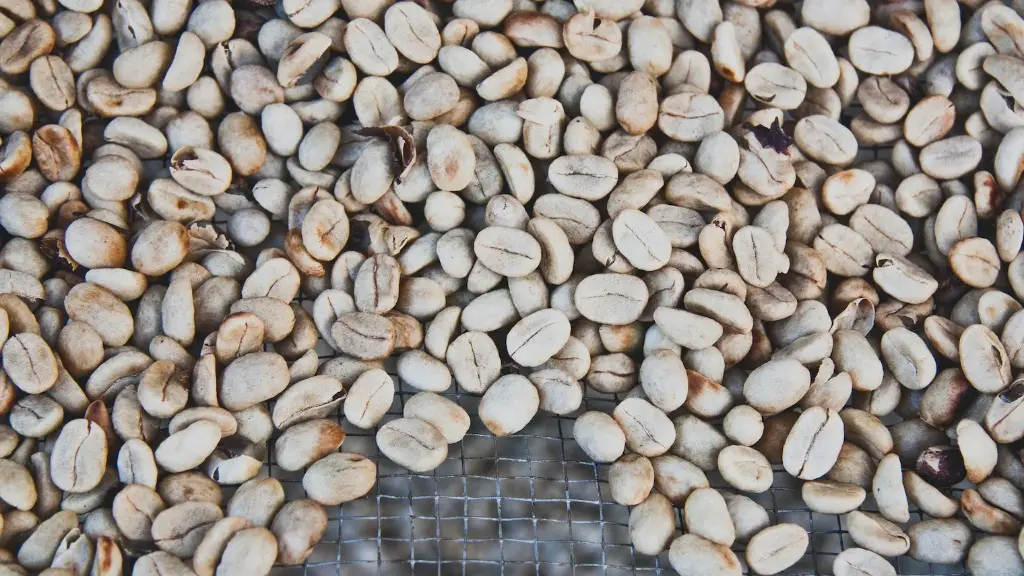Can I Drink Coffee With Prediabetes?
Coffee is one of the world’s most popular beverages, with almost two billion cups of it brewed and consumed every day. Studies suggest that drinking coffee regularly may provide beneficial health effects. However, when it comes to having prediabetes (or pre-diabetes), it is important to understand the potential impact it can have – for better or for worse.
Prediabetes can be defined as having elevated blood sugar levels. For many people, this is a sign of an upcoming development of full-blown diabetes. People with prediabtes should take care to consume healthy amounts of food and beverages to avoid reaching the diabetes threshold.
Given the popularity of coffee, it is natural to ask whether it is alright to drink if you have pre-diabetes. The answer depends on the contents of the beverage. A cup of black coffee contains around 2 to 5 calories and no carbohydrates, so it will not raise blood sugar levels. In addition, it contains some antioxidant properties that may benefit metabolic health.
However, it is important to note that coffee should not be consumed in large amounts due to its potential to increase the risk of other health problems, such as heart disease. For people with prediabetes, the American Diabetes Association recommends that coffee consumption should be limited to less than 4 cups per day to ensure optimal health.
Coffee consumption should also be considered in the context of a holistic lifestyle. Prediabetes should be managed by being physically active and consuming a healthy diet. Coffee should be consumed in moderation and it should be noted that adding sugar or other additives to a cup of coffee can increase its caloric value and may lead to a higher blood sugar level.
Overall, in moderation, drinking black coffee with prediabetes can be beneficial. However, it is important not to overconsume coffee and to focus on consuming a healthy diet. It is also important to be aware that adding sugar or milk to coffee could cause additional issues.
Coffee And Metabolic Health
Metabolic health is important for helping people to maintain healthy blood sugar levels. Studies have suggested that coffee can potentially have positive effects on metabolic health. For example, one study showed that coffee consumption was associated with improved biomarkers for glucose metabolism, suggesting that it could help to improve metabolic health.
In addition, coffee contains caffeine which may have benefits for boosting metabolism. Studies have shown that caffeine could potentially increase fat oxidation which could help with weight loss and reduce the accumulation of fat.
These studies suggest that drinking coffee could help to improve metabolic health. Nevertheless, it is important to note that coffee should only be consumed in moderation and not as a substitute for a healthy diet as it could still be detrimental to health if it is consumed in large amounts.
Potential Neurological Benefits
Coffee also contains caffeine which has been linked to a variety of neurological benefits. Studies have suggested that drinking coffee regularly may have positive effects on mood and mental alertness. Furthermore, it could also help to reduce the risk of neurodegenerative diseases, such as Alzheimer’s, as well as other mental illnesses.
Another study showed that caffeine could potentially improve cognitive function and performance. This cognitive benefit may be particularly beneficial for those with prediabetes who may need to focus on controlling their blood glucose levels.
Overall, coffee contains caffeine which is linked to various neurological benefits. For people with prediabetes, these benefits could be especially beneficial as they may need focus on managing their blood sugar levels as well as their overall health.
Potential Downsides
Although coffee can potentially provide beneficial health effects, it can also have potential downsides. As previously mentioned, it should not be consumed in large amounts as this could lead to other health problems, such as heart disease. In addition, it should be noted that coffee can be addictive and can lead to withdrawals, such as headaches and fatigue.
Furthermore, it is important to note that adding sugar or milk to coffee could cause additional issues. Adding sugar to a cup of coffee could increase its caloric value and may lead to a higher blood sugar level, whereas adding milk could also lead to increases in calories and fat consumption.
Overall, coffee can provide beneficial health effects, but it is important to remember that it should be consumed in moderation and without additional additives. People with prediabetes should take care that their coffee consumption does not lead to a higher blood sugar level or cause other health problems.
Coffee And Diabetes
As mentioned, prediabetes can often be a precursor to full-blown diabetes. Therefore, it is important to understand the potential role of coffee in managing or preventing diabetes. Studies have suggested that long-term coffee consumption could potentially reduce the risk of developing diabetes.
However, it should be noted that the association between coffee and diabetes is complex. Studies have also shown that caffeine could have a stimulating effect on glucose metabolism and could lead to higher glucose levels in certain individuals. Therefore, it is important for those with prediabetes to monitor the impact of coffee consumption on their blood glucose levels.
The Bottom Line
In conclusion, drinking black coffee in moderation can be beneficial for those with prediabetes. It contains some health benefits and could potentially help with metabolic health. However, it is important that it is consumed in moderation as it may not beneficial if consumed too often or with additives. People with prediabetes should monitor the impact of coffee consumption on their glucose levels and ensure that it does not lead to other health issues.




